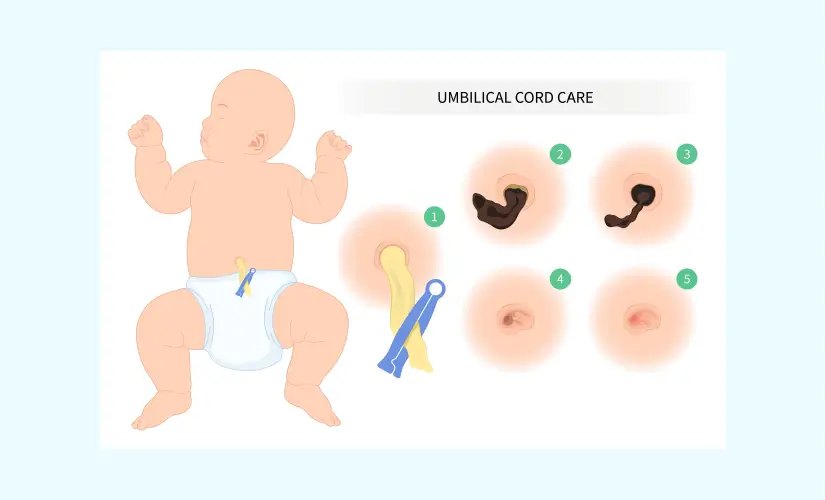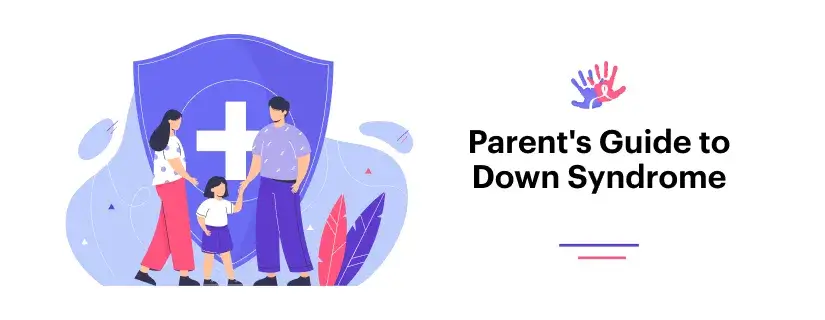-
Doctors
-
Specialities & Treatments
Centre of Excellence
Specialties
Treatments and Procedures
Hospitals & Directions HyderabadCARE Hospitals, Banjara Hills CARE Outpatient Centre, Banjara Hills CARE Hospitals, HITEC City CARE Hospitals, Nampally Gurunanak CARE Hospitals, Musheerabad CARE Hospitals Outpatient Centre, HITEC City CARE Hospitals, Malakpet
HyderabadCARE Hospitals, Banjara Hills CARE Outpatient Centre, Banjara Hills CARE Hospitals, HITEC City CARE Hospitals, Nampally Gurunanak CARE Hospitals, Musheerabad CARE Hospitals Outpatient Centre, HITEC City CARE Hospitals, Malakpet Raipur
Raipur
 Bhubaneswar
Bhubaneswar Visakhapatnam
Visakhapatnam
 Nagpur
Nagpur
 Indore
Indore
 Chh. Sambhajinagar
Chh. SambhajinagarClinics & Medical Centers
Book an AppointmentContact Us
Online Lab Reports
Book an Appointment
Consult Super-Specialist Doctors at CARE Hospitals
Important Newborn Care
Updated on 28 November 2022

Table of Content
A newborn baby can bring a whirlwind of excitement along with plenty of stress for parents. However, the first 28 days (the neonatal period) are crucial for a baby's survival as it is the foundation for lifelong health and development. Whether it is your first time or you have already taken care of a newborn, it is normal to feel like you don't have any idea about what you are doing. With these tips, you can ensure that your newborn receives the best care, emphasizing the importance of newborn care.
Getting started with Feeding
Breastfeeding or bottle feeding can be a challenging task, especially for first-time mothers. However, there are many benefits of breastfeeding. Getting help from a paediatrician or even from nurses during your hospital stay after delivery can help you nurse your baby optimally, as well as you can learn how you should hold your newborn.
Holding a Newborn
When you don't have much experience handling babies, their fragility can scare you. Remember these basics to help you get started:
- Sanitise your hands before holding your newborn, as they are highly susceptible to infections.
- Give support to your baby's head and neck while cradling. Make sure not to hold it too high or too low.
- Do not shake your baby, even when you have to wake it up. This can lead to bleeding in the brain.
- Having said that, avoid activities that involve bouncing and jumping, and always place your baby and fasten it carefully while taking it out on a stroller or in a car.

Bonding
Bonding becomes an important contributing factor to future emotional attachments between you and your child. Physical closeness promotes emotional attachment. Make sure to spend ample time caressing, cradling, and playing with your baby to promote healthy emotional growth. You can engage your newborn's senses by using various vocal and other sounds such as rattling and music. But remember to keep the volumes at a low or moderate level. If you have a premature baby, opting for gentle massage can enhance bonding as well as promote healthy physical growth and development.

Breastfeeding and chestfeeding
Breastfeeding might come naturally, but it can be tricky initially. Here are some tips if you choose to breastfeed:
- Start early: If possible, feed your baby within the first hour after birth when they are most awake. This helps them adjust and bond with you.
- Feed when needed: Let your baby nurse whenever they want in the beginning to help your milk supply. Newborns may want to eat every 1 to 3 hours at first.
- Latch correctly: Make sure your baby latches onto your breast properly to prevent discomfort and ensure enough milk. You can ask a nurse or consultant for help if needed.
- Seek assistance: Many hospitals have experts to assist with breastfeeding, offering guidance and different feeding positions.
- Set up a cozy spot: Make sure you have a comfortable chair, pillows, and snacks nearby for a relaxed feeding environment.
- Stay nourished: Eat an extra 300–400 calories daily while breastfeeding and drink plenty of water to stay hydrated.

Changing Diapers
This is a monumental task for many first-time parents. But you should adapt to the fact that your newborn will dirty the diapers around ten times a day. So before you start diapering, make sure you have all the supplies you need, like a clean diaper, fasteners, diaper wipes, etc. Diaper rash is common, so you can put some ointment on the affected areas and give warm baths.

Bathing
Bathing newborns frequently is not recommended as it may lead to drying of the skin. Limit the bathing sessions to two to three times a week. Use a soft washcloth and unscented soap and shampoo for your baby. Always put your baby in clean clothes after wiping it with clean towels. You can opt for tub baths once the baby can sit up straight. Get bathtubs made for babies which are 2-3 inches deep.
Sleeping & Feeding
Newborn babies can sleep for more than 16 hours a day, and that occurs for periods of 2 to 4 times. You should also be mindful of the time gap of feeding as babies have a small digestive system which means they get hungry often. You should not let your newborn go without food for more than 4 hours.
Umbilical Cord Stump Care
The umbilical cord stump is a sensitive area that requires special attention until it falls off naturally, usually within one to three weeks after birth. Keep the cord stump clean and dry by avoiding excessive moisture and folding the diaper below it. If you notice any signs of infection, such as redness, swelling, or pus, consult your pediatrician promptly.

Vaccinations and Regular Check-ups
Vaccinations are a vital part of protecting your baby from preventable diseases. Follow the recommended vaccination schedule provided by your healthcare provider to ensure your child is up-to-date with their immunizations. Additionally, regular check-ups with the pediatrician are essential to monitor your baby's growth and development, address any concerns, and receive guidance on appropriate milestones and care.
Skin-to-Skin Contact
Skin-to-skin contact immediately after birth is highly beneficial as it helps regulate the baby's body temperature, heart rate, and breathing. Moreover, this intimate connection fosters a strong emotional bond between the newborn and the parents, promoting feelings of security and love.
Newborn Baby Sleep
Babies are not born knowing how to sleep like adults. This is mostly because their tummies are very small – they need to eat about 8 to 12 times a day, even during the night. So, in the beginning, don't think that a baby will sleep for a long time without waking up. But there are ways to make it easier for the baby to sleep at night.
- Creating a calm and soothing sleep environment
- Establishing a consistent bedtime routine
- Responding to the baby's cues can contribute to improved sleep quality
- Gradually help them sleep for longer stretches as they continue to develop

Newborn Poop
In the initial days following birth, your baby will expel a thick, dark green or black substance known as meconium, which is perfectly natural. After a short while, if your baby is breastfed, they will have around six to eight soft, yellow-green bowel movements each day, sometimes containing tiny seedlike particles. However, for formula-fed babies, it's typical to have one to two stools per day, which will be thicker and colored yellow or tan.
Remember, unless your baby displays signs of diarrhea, significant differences in the color, texture, and frequency of their bowel movements are within the normal range.
Essential Things You Must Have to Take Care of Newborn:
For taking care of newborn you must have some essential things such as:
- Crib: Provides a safe sleeping space for the newborn. Ensure to purchase before the baby is born.
- Crib Mattress: Ensures a comfortable and supportive surface within the crib because the newborns have very soft and sensitive skin.
- Burp Cloths: Used to clean spit-up or drool. Keep a clean and washed burp cloth near you and use it whenever the baby burps.
- Receiving Blankets or Baby Carrier/Wrap: Provides warmth and security or facilitates carrying the baby. Use these blankets whenever carrying the baby in arms or handing the baby to another person.
- Bibs: Helps keep the baby's clothes clean during feeding. Tie a comfortable bib on the baby before feeding food or milk.
- Bottle Warmer: Use a bottle warmer if you are feeding a baby with baby formula milk, it is convenient for warming baby formula or breast milk to a suitable temperature.
- Bottle Brush: Essential for cleaning baby bottles thoroughly. USe a bottle brush to clean the milk bottle of the baby.
- Wipes: Useful for cleaning the baby's skin during diaper changes or for general hygiene. Always carry the baby wipes.
- Diaper Rash Cream: Helps prevent and soothe diaper rash. Use diaper rash cream for the rashes that are caused due to diapers.
- Separate Shampoo, Soaps, Moisturizer: These are necessary for gentle and specialised baby skin care as the babies have very soft and sensitive skin, use the specific products for baby care.
Parenting in the first few weeks, even months can seem overwhelming. Once you start getting used to the routine, you will start parenting newborn baby care like a pro. For any queries, reach out to your regular paediatrician and seek treatment for newborns whenever needed to ensure optimum care for your newborn baby!
With love, care, and attention, you will embark on a beautiful journey of parenthood and witness your baby blossom into a healthy and happy individual.

ENQUIRY FORM
SELECT CATEGORIES
-
Neurosciences (16)
-
Neurology (37)
-
Neurosurgery (14)
-
Orthopaedics (48)
-
Oncology (33)
-
Obstetrics and gynecology (52)
-
Pulmonology (23)
-
Urology (20)
-
Nephrology (13)
-
Psychiatry (7)
-
Dietetics and Nutrition (111)
-
General Medicine (63)
-
Cardiac Sciences (32)
-
Vascular & Endovascular Surgery and Interventional Radiology (15)
-
Gastroenterology (46)
-
Endocrinology (23)
-
Plastic Surgery (10)
-
Critical Care Medicine (5)
-
COVID-19 (16)
-
Dermatology (16)
-
Emergency Care (1)
-
Ophthalmology (4)
-
Pediatrics (14)
-
Laparoscopic and Bariatric Surgery (8)
-
ENT (15)
-
Kidney Transplant (1)
-
Liver Transplantation and Hepatobiliary Surgery (5)
-
General Surgery (3)
-
Internal Medicine (5)
-
Medicine Information
What is the Healthy Diet for Children?
Pneumonia in Children: Causes, Symptoms and Treatment
YOU MAY ALSO LIKE
RECENT BLOGS
-

Preterm Birth (Premature Birth): Symptoms, Causes, Treatment and Prevention
13 May 2025
Read More
-

Rotablation Angioplasty: Benefits, Treatments, And Recovery Time
9 May 2025
Read More
-

What Is The Difference Between IUI and IVF?
9 May 2025
Read More
-

Venous Malformations: Causes, Symptoms, and Treatment
30 April 2025
Read More
-

Varicose Vein Foam Sclerotherapy: Treatment, Benefits, and Procedure
30 April 2025
Read More
-

Radiofrequency (RF) Ablation Treatment for Varicose Veins: Know More
30 April 2025
Read More
-

Varicose Vein Sclerotherapy: Treatment, Benefits, and Procedure
30 April 2025
Read More
-

Varicose Vein Endovenous Laser Ablation: Procedure, Benefits, Risks
30 April 2025
Read More
Have a Question?
If you cannot find answers to your queries, please fill out the enquiry form or call the number below. We will contact you shortly.












